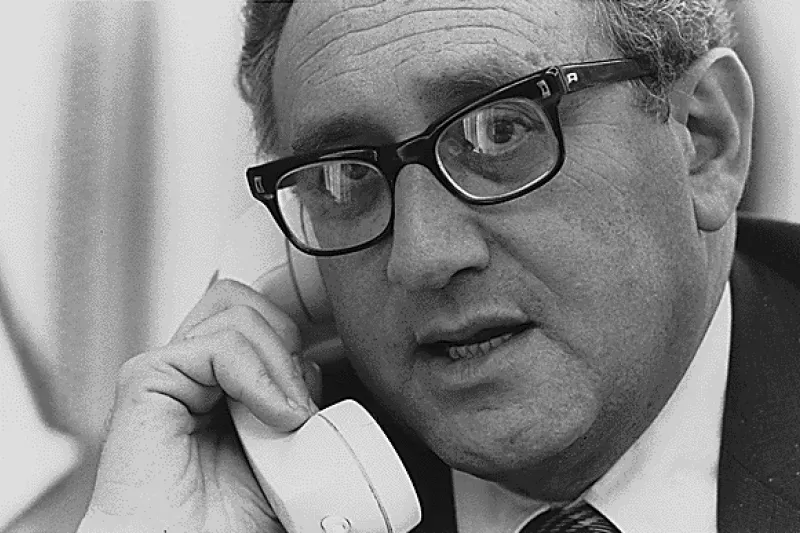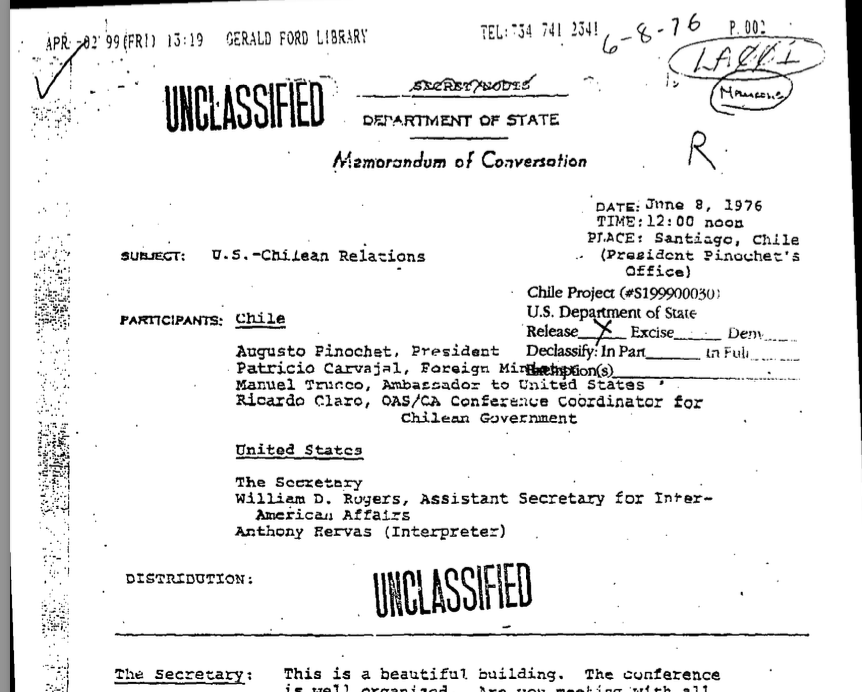Washington, D.C., October 27, 2025 - Tonight, PBS stations across the country will begin airing a two-part biographic documentary on Henry Alfred Kissinger, depicting his life and the controversial legacy of his foreign policies. “According to the featured experts,” concludes a review of the film published in Foreignpolicy.com, “Kissinger learned the wrong lessons from his experiences with Nazi Germany. By keeping his eye trained so high above the ground, not only did he accept rampant political violence and repression but crafted foreign policies that strengthened those very forces.”
As one of the world’s leading repositories of Kissinger documentation, the National Security Archive supported the film with declassified records, historical perspective and subject-matter expertise. Archive Senior Analyst Peter Kornbluh, who directs the Chile Documentation Project, provided formerly “Top Secret” records on Kissinger’s role as the architect of policies and operations to destabilize the elected Chilean government of Salvador Allende. Among them are documents about U.S. support to the September 11, 1973, military coup and efforts to assist the consolidation of the repressive regime that took power. “In Chile,” according to the Foreign Policy review, “Kissinger shaped U.S. policy that allowed the military overthrow of a democratically elected regime in 1973 and resulted in the reign of General Augusto Pinochet, who systematically violated human rights.”
The film also features a number of key historical actors and historians, among them Morton Halperin, a top aide to Kissinger on the National Security Council who resigned after Kissinger secretly ordered the FBI to wiretap his phone following a New York Times exposé on the Nixon administration’s clandestine bombing campaign in Cambodia. Halperin later joined the board of the National Security Archive when it was created 40 years ago in 1985.
Over four decades, the Archive has sought, obtained and disseminated thousands of formerly secret U.S. government documents that were written, read by, or related to Kissinger and his controversial foreign policies. In 1998, the Archive initiated a lawsuit to force the U.S. government to retrieve thousands of pages of Kissinger’s telephone conversation transcripts—“telcons”—that the former secretary of state had falsely designated as personal papers and taken when he left office. The Archive’s FOIA and legal efforts led to the declassification of over 17,000 pages of Kissinger’s conversations—with Nixon, CIA directors, other U.S. officials, foreign leaders, and prominent U.S. reporters and media personalities, among them Ted Koppel and Marvin Kalb.
In 2008, the Archive and ProQuest published a digitalized collection of the telcons, The Kissinger Telephone Conversations: A Verbatim Record of U.S. Diplomacy, 1969-1977, as part of the Digital National Archive series. An Archive book based on the declassified transcripts of his talks with Chinese and Soviet leaders, The Kissinger Transcripts: The Top Secret Talks with Beijing and Moscow, dited by Senior Analyst William Burr, was published in 1999. A special Electronic Briefing Book marking the death of Henry Kissinger, “Henry Kissinger: A Declassified Obituary,” provided key documentation for media coverage when Kissinger died at age 100 on November 29, 2023.
The National Security Archive has contributed to a number of Kissinger-related documentaries. In 2005, the Archive won an Emmy Award for outstanding achievement in news and documentary research for its work on the Discovery Times Channel film, “Nixon in China”—which substantively changed the known history of the Nixon-Kissinger opening to China.
The Archive’s Peter Kornbluh applauded American Experience director Barak Goodman’s use of the declassified historical record in the PBS film. “Kissinger’s tenure left a voluminous paper trail of secret documents,” said Kornbluh. “And those records will forever provide evidence for the verdict of history on Kissinger’s controversial foreign policies and their consequences, at home and abroad.”
Watch the trailer for the new documentary below.


